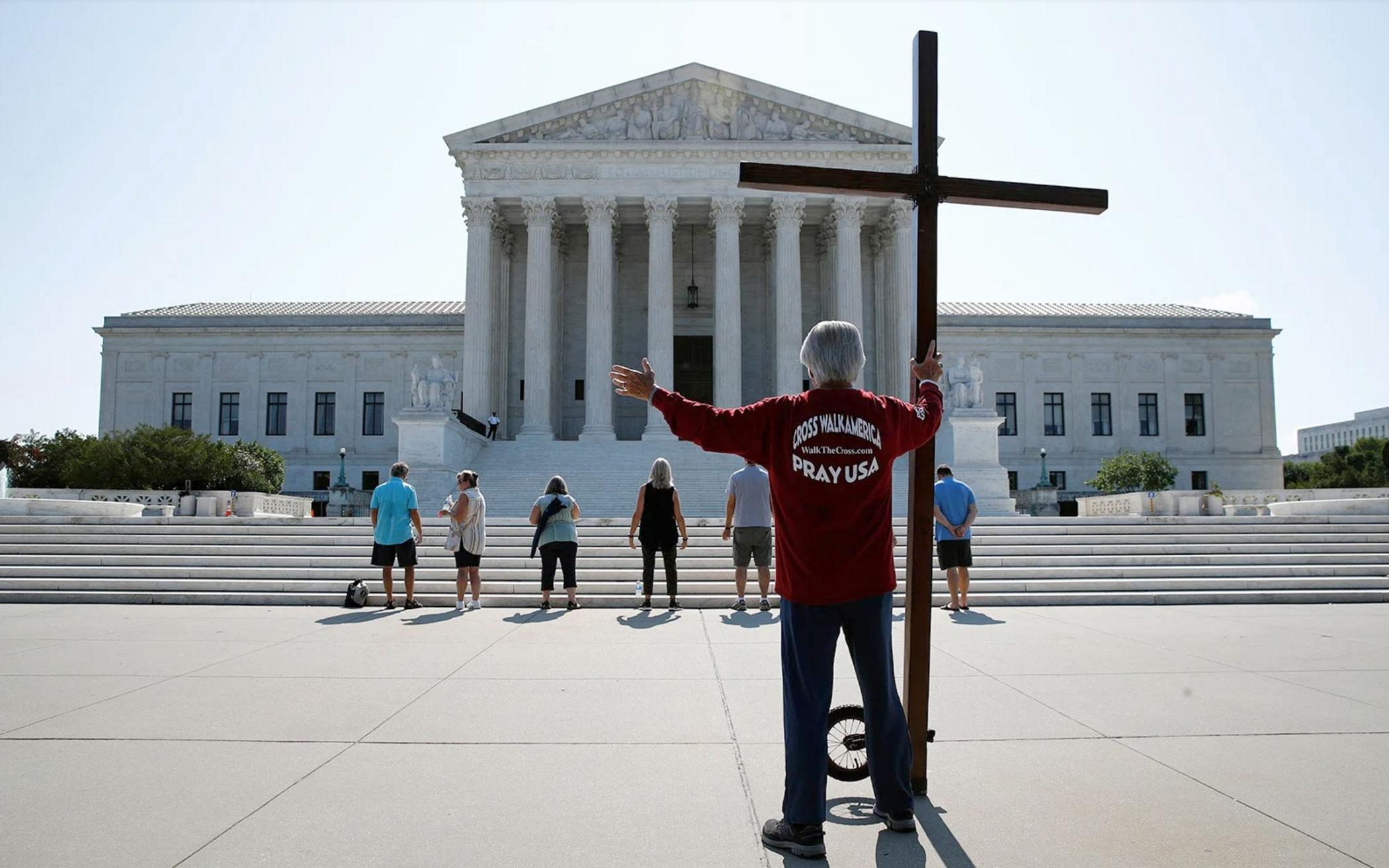In a July 8 decision, the Supreme Court of the United States ruled that religious school teachers who perform a religious role, even if they are not ordained, and even if religion makes up a small part of their overall responsibilities, are subject to a ministerial exception from civil rights protections afforded to other employees.
In Our Lady of Guadalupe School v. Morrissey-Berru and St. James School v. Biel, the Court carved out a broad ministerial exception to workplace discrimination rules that allows religious schools to include lay teachers as among those subject to an exemption from civil rights laws, such as Title VII of the 1964 Civil Rights Act, which the Court determined on June 15 to include protection for LGBTQ persons. Justices Ruth Bader Ginsburg and Sonia Sotomayor dissented from the 7-2 ruling.
“The religious education and formation of students is the very reason for the existence of most private religious schools, and therefore the selection and supervision of the teachers upon whom the schools rely to do this work lie at the core of their mission,” wrote Justice Samuel Alito, who authored the ruling. “Judicial review of the way in which religious schools discharge those responsibilities would undermine the independence of religious institutions in a way that the First Amendment does not tolerate.”
The ministerial exception is a legal doctrine arising from the First Amendment that bars the government from interfering with religious institutions’ hiring and firing of clergy.
The idea is that the government should not impose on religious institutions in matters of faith and doctrine.
In the combined cases heard by the court, two Catholic school teachers who taught fifth grade found their contracts were not renewed. They sued, claiming discrimination. Agnes Morrissey-Berru, who was forced to retire, sued on the basis of age. Kristen Biel, who asked for time off because she was receiving treatment for breast cancer, sued on the basis of disability. She has since died.
Neither school required its teachers to be practicing Catholics, and Morrissey-Berru was not. But both teachers performed some religious functions, teaching a module on religion and leading the students in prayer.
The court found that that was sufficient and that the teachers were not entitled to discrimination protections.
“There is abundant record evidence that they both performed vital religious duties, such as educating their students in the Catholic faith and guiding their students to live their lives in accordance with that faith,” Alito said.
The idea of a ministerial exception has been around for a long time. Through the years, courts have recognized that secular justices should not adjudicate internal affairs of a church or synagogue. For example, courts can’t tell the Catholic Church to hire a woman as a priest when the church maintains an all-male priesthood.
But the court expanded on the ministerial exception in a 2012 case—Hosanna-Tabor Evangelical Lutheran Church and School v. Equal Employment Opportunity Commission—when it ruled that a kindergarten teacher could not sue the Lutheran school she worked for, because she had some religious responsibilities. In that case, the teacher, Cheryl Perich, had been designated a “called teacher” after completing a theological course of study. The Lutheran Church-Missouri Synod referred to her as a “commissioned minister.”
When Petrich became sick and had to take time off, the school replaced her, and she sued under the Americans with Disabilities Act.
But in that case the court did not spell out a formula to determine whether all school teachers qualify as ministers.
Critics, including the National Women’s Law Center and the Leadership Conference on Civil and Human Rights, said Wednesday’s ruling would drastically increase the number of employees denied civil rights protections.
It would potentially deprive scores of women, people of color, older workers, workers with disabilities, LGBTQ employees and others of legal remedies for workplace discrimination.
Those teachers would not be able to sue over sexual harassment or for overtime pay, equal pay and a myriad of other civil rights protections.
Caroline Mala Corbin, a professor of law at the University of Miami School of Law, said the ruling would most affect women, who make up the majority of religious school teachers.
“Women are not ministers when it comes to the actual title, but suddenly they are ministers when it comes to losing their protections from discrimination,” Corbin said. “They get the worst of both.”
At the root of the case was the question: What is an “important religious function”?
The schools argued the sole test for eligibility for the ministerial exception is whether the employee fulfills an important religious function, regardless of whether the employee has religious training or a formal title such as “minister.”
Several lawyers wrote an amicus brief agreeing.
“In the long run, nothing is more important to religious organizations than transmitting the faith to the next generation,” said Douglas Laycock, a leading scholar in the area of religious liberty who argued the Hosanna-Tabor case before the court eight years ago. “Churches have to keep control of that process.”
The schools were represented by the Becket Fund for Religious Liberty.
c. 2020 Religion News Service
The Banner has a subscription to Religion News Service and occasionally re-publishes articles of wide Christian interest, according to the license. This story has been edited for length. The original story can be found here.
Editor’s note: The Christian Reformed Church in North America supports the Americans with Disabilities Act and recently wrote about moving Toward Full Compliance in Disability Ministry.
About the Author
Religion News Service is an independent, nonprofit and award-winning source of global news on religion, spirituality, culture and ethics.

